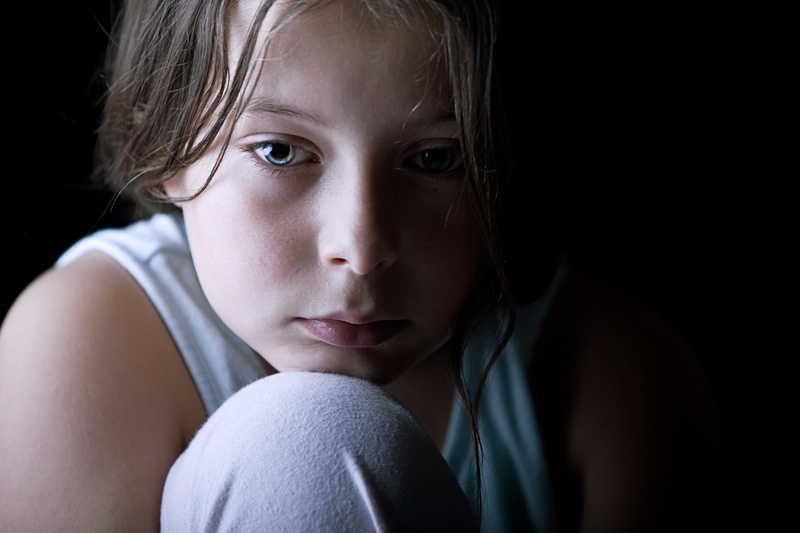The Link Between Childhood Trauma and Addiction

There is much discussion surrounding the “cause” of addiction. While some believe addiction is a choice, there is much-documented research to support that addiction is a trauma response.
One’s childhood experiences and circumstances typically set the stage for future behaviours and patterns. There is mounting evidence to also suggest that these experiences and circumstances—when traumatic—can lead many down the path of substance use and addiction.
Just as learning to walk and talk affects brain development by causing synapses and neural-connectivity to develop, grow stronger or break, childhood trauma may have a strong influence on an individual’s susceptibility to addiction.
The National Institutes of Health reports that adolescents who have substance abuse issues typically are characterized by having severe behavioural problems, academic challenges, family issues and mental health disorders, which are directly linked to environmental adversities and biological vulnerabilities that begin in early childhood. (1)
The Onset of Addiction From Childhood to Adolescence

There is a clear link between childhood trauma and addiction, but it is complex and no two experiences are the same.
As a general statement, when a child experiences trauma such as abuse (physical, verbal, emotional, and sexual), abandonment, or neglect— and does not receive timely support or intervention— the risk of developing a substance abuse problem later in life increases.
This is typically due to feelings of isolation and vulnerability, which can become magnified in adolescence while trying to “fit in” and gain acceptance from peers.
As any child enters adolescence and tries to “fit in” to feel loved and accepted by others, they may be led towards high-risk behaviours such as using drugs, smoking, and drinking alcohol. Since substances and behaviours help to numb and escape reality if a person feels relief after ingesting a substance or behaviour, a bond can form, and the onset of addiction begins.
How Many Children Who’ve Experienced Trauma Will Develop an Addiction?
While not all children who’ve experienced trauma will develop an addiction, many adults who are suffering have experienced some form of trauma in their childhood or early adolescence. However, that’s not to say a person will only develop an addiction if they have experienced pain or trauma— though, that is the strongest commonality in the majority of addiction cases.
An Adverse Childhood Experiences (ACEs) study showed that childhood experiences have a huge impact on a person’s ability to achieve lifelong health and opportunity. The study revealed:
– Childhood trauma can increase the risk of early substance abuse by two to four times.
– Children with five or more ACEs are seven to 10 times more likely to develop an addiction to drugs and/or alcohol.
– Approximately two-thirds of intravenous drug users reported that they experienced abusive traumatic childhood events.
– Those with traumatic childhood experiences also have higher rates of depression, domestic violence, sexually transmitted infections and even heart disease.

Additionally, according to the Substance Abuse and Mental Health Services Administration (SAMHSA):
– 75 percent of women and men in substance abuse treatment report histories of abuse and trauma.
-97 per cent of homeless women with mental illness report severe physical or sexual abuse.
– 12 to 34 percent of individuals in substance abuse treatment have PTSD.
– About one-third of people exposed to trauma develop PTSD with men reporting higher incidences of trauma, but women more likely to develop PTSD.
Healing Past Childhood Trauma and Overcoming Addiction: What Are the Options for Healing?

In order to properly treat and overcome addiction, the person suffering must become aware of, face, and heal vulnerable and painful memories. This is not an easy thing to work through alone, which is why working with a trusted therapist can be a crucial part of the healing journey.
Expressing emotion and reliving a traumatic event (which is called catharsis of abreaction) without understanding (catharsis of integration) can actually strengthen a negative emotional response without the healing component. In the end, this causes a person more pain and potentially hinders the healing process.
Working through trauma and looking to the root of addiction with a therapist can allow past experiences, beliefs, and painful memories to be processed in a healthy, effective way that’s conducive to your healing.
Seeking the guidance of an addiction centre or counsellor who specializes in both addiction treatment and PTSD and/or psychological disorders/trauma, creates a strong foundation in the early stages of healing and addiction recovery.
If this speaks to you, we invite you to book a free consultation with one of our team members to learn about options for recovery programs or one-to-one sessions with one of our therapists. It’s never too late to start the healing process and create a fresh start.
